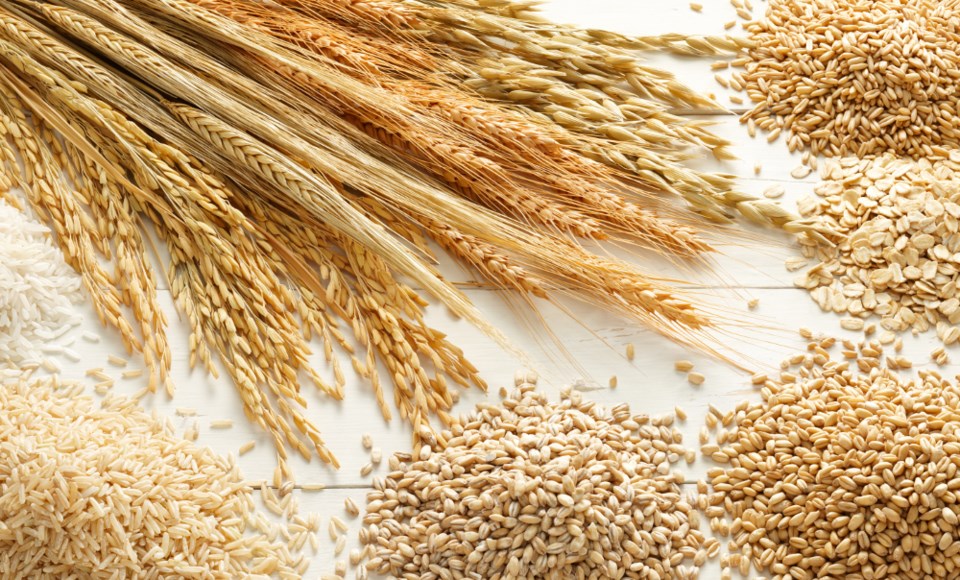Look before you leap is sage advice that can be applied in so many situations. It is always good to know as much as possible about the situation you are leaping into and the risks and rewards you might encounter there. The advice, read before you sign, is just as important and goes hand-in-hand with ‘get your agreements in writing’.
Grain marketing contracts are one of the most common documents you will sign. There are many different contracting and delivery options available from a range of grain companies. All will have advantages and disadvantages and each producer will choose an option based on the perceived risks and benefits and their cash flow and financial management situation. Regardless of the type of contract you choose, there are several points you should consider.
A grain delivery contract is a legally enforceable agreement that commits the seller to deliver a set quantity and quality of product and the buyer to accept delivery at a specific date and place and for an agreed price. The terms and conditions of contracts will vary between grain companies and can change from year to year without notice. The legal terminology of contracts also varies between companies making it difficult to make comparisons and to decide which is best for you. A contract is, however, an agreement between two parties which is legally binding. The onus is on the producer to read and understand the entire document before signing it. When you sign the contract, you are agreeing to the contractual requirements and you are indicting that you have read and understood the terms and conditions. “I didn’t read it” or “I didn’t understand it” will not work as a defense if a dispute arises.
Read the contract to ensure that everything promised or agreed to is, actually, in the contract. Verbal assurances by the buyer’s agent are not legally binding unless these promises are included in the written contract.
There are often two parts to a contract. The first pages will deal with the product quantity and quality, the price and date and location of delivery. This part is usually easy to read and we are tempted to stop reading there. The second part of the contract will contain the terms and conditions, often referred to as the ‘fine print’. As they say ‘the devil is in the details’ and you will be well served to know these details. The part of the contract stating the terms and conditions will take the most time and determination to read. However, reading the entire contract and asking for clarification where necessary can save you a lot of money and disappointment. It is important to keep a copy of the whole signed contract for your reference in case of a dispute.
Read the contract with the objective of understanding the details of the agreement such as: the grade and quality, delivery location, delivery period and possible extensions, default penalties and the clauses dealing with events considered to be an Act of God or Force Majeure. What discounts will you face if the crop you have on hand to deliver is a lower quality than what you agreed to in the contract? What considerations are offered if the delivery location changes and you are asked to transport grain a greater distance? Your contract states a delivery period and your ability to make your payments depends on selling your grain during that timeframe. What happens if the buyer does not call for delivery during that period? Is the contract offering adequate compensation for this delay?
Grain companies do not use standard contracts or even standard terminology. They are not obligated to tell you when they change the wording of their contracts or explain those changes to you. Don’t assume that the contract you are about to sign this year is exactly like the one you read and signed last year. It is up to you to make sure the document you are signing says what you think it says. If you are concerned about clauses or terms in the contract, seek legal advice before signing. Time and money spent up front can save you a lot more time and money later on.
For more information on the advantages and disadvantages of the various delivery contracts go to Saskatchewan.ca and search for the publication Introduction to Grain Marketing, stop by your local Regional Office to pick up a copy or call the Agriculture Knowledge Centre 1-866-457-2377. Don’t forget to follow the Ministry of Agriculture on Twitter @SKAgriculture for all the latest information on production, markets and farm business.
Brenda Stefanson, MSc, PAg
Regional Farm Business Management Specialist
Saskatchewan Ministry of Agriculture, Watrous

